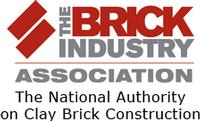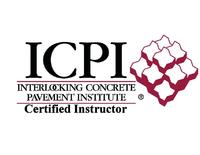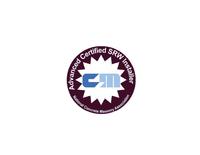Professional Affiliations and Certifications

About the Interlocking Concrete Pavement Institute (ICPI) – The Interlocking Concrete Pavement Institute (ICPI) represents producers, suppliers, contractors, design professionals and consultants. ICPI promotes the highest product standards through ICPI product certification and installation guidelines through ICPI concrete paver installer certification. ICPI publishes the Interlocking Concrete Pavement Magazine, along with marketing and technical resources for design professionals, contractors and homeowners. The Hardscape North America trade show for hardscape contractors is also produced by ICPI. Applications for pavers include driveways, patios, plazas, walkways, roofs, airports, streets, ports and stadiums. To learn more about ICPI, visit www.icpi.org.
special note: Our President Reggie is proud and honored to advise that he is currently serving on two national committee's for the ICPI. He is serving on the Technical Committee and the Construction Committee)


In the U.S., Americans have used clay brick pavers since the earliest colonial days. Some pavers are still in service after 200 years.
Today, many architects, homeowners, builders, designers and city planners prefer clay brick pavers over other surfaces because of their superior color retention, unmatched durability, strength, design options and low maintenance. For homeowners, clay pavers can transform garden pathways, driveways and patios.
For larger hardscape projects, today's flexible paving systems are an ideal surface for adding warmth, elegance and smoothness to sidewalks, patios, plazas and roadways that handle vehicular traffic. Genuine clay brick is also environmentally-friendly and an excellent long term value.
Whether you are an architect, builder, designer or city planner working on a major project or a homeowner beautifying your property, this website provides you with the information you need. Select from the list below and find out more about beautiful, durable, clay brick pavers. Please visit http://www.gobrick.com for additional information.

Our President Reggie and Vice-President Jason are both certified installers. Reggie also has earned his Commercial Technician designation. Jason has earned his Permeable Concrete Interlocking Paver Specialist designation. We strive to send our other employees to school where they also can earn their certification. For contractors involved in the residential and commercial installation of interlocking concrete pavements, the ICPI Concrete Paver Installer Certification is THE industry recognized program for the professionals committed to industry guidelines for segmental concrete pavement installation. It’s more than just a certificate on the wall – it’s a testament to your level of investment in your profession that demonstrates your knowledge and skills for interlocking concrete pavement installation best practices.

Our President, Reggie is an authorized Instructor for the ICPI. ICPI authorizes two types of instructors for its installer courses – Contractor and Technical instructors. Both types of instructors must meet the same basic requirements, but Contractor instructors must also have installation experience. Instructors must be authorized for each course they wish to teach.
Authorized CONTRACTOR Instructors (requirements)
Employer is ICPI member
- Hold current Concrete Paver Installer certification
- Hold Record of Completion for recommended prerequisite courses (1)
- Meet installation experience requirements (2)
- Earn 90% on exam for course they wish to instruct
- Attend ½-day Adult Educator Training and earn at least 75% on the course exam (3)
- Attend ½-day Instructor Training for the course they wish to instruct
- Earn 10 credits of continuing education within every 2-year instructor authorization term (4)
- Instruct a minimum of one ICPI installer course within every 2-year term

Jason our Vice President holds his certification for Certified SRW Installer and Advanced Certified SRW Installer from the NCMA.
The Basic Certification included: The Segmental Retaining Wall (SRW) Installer Course covering fundamental SRW installation guidelines, material and system component properties, soils and compaction, the effect of water, and site practices. The Certified SRW Installer (CSRWI) Program requires all who complete the SRW Installer Course (or equivalent SRW-installation-related education) and passes a written examination is certified as a Certified SRW Installer (CSRWI). This credential is highly valued by consumers.
The Advanced Course included: SRW applications and installation techniques for advanced residential and light commercial projects, and is open to NCMA Certified SRW Installers (CSRWI) who are engaged in the construction of SRWs. Advanced topics include: Wall layout and planning, water and drainage, cut and fill walls, tiered walls, corners and curves, stairs and patios.



